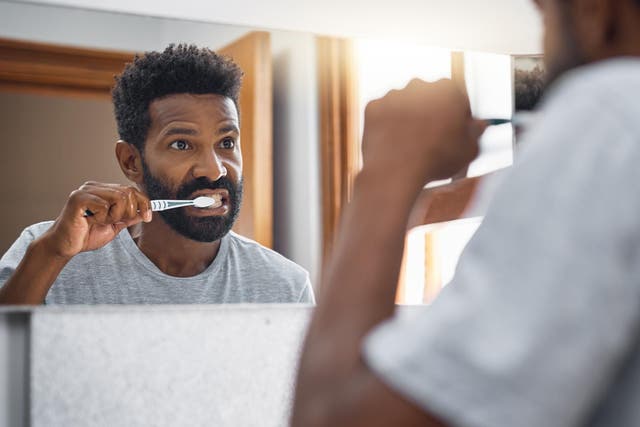Stay up to date with notifications from The Independent
Notifications can be managed in browser preferences.
Thank you for registering
Please refresh the page or navigate to another page on the site to be automatically logged inPlease refresh your browser to be logged in
IndyBest
Welcome to IndyBest; the ultimate destination for shopping advice, gift guides and product reviews. For more than 40 years, The Independent’s trusted journalism and impartial values have run throughout our IndyBest editorial coverage to ensure that every purchase you make – big or small – is one we’d genuinely recommend and the best for you.
While we may earn commission when you purchase through the links on our site, we pride ourselves on being entirely independent and never allow this to influence our product selection. In fact, every product featured in our reviews, across tech, gaming, fashion, beauty, fitness and home and garden, has earned its spot as the result of rigorous, real-world product testing by our expert journalists who you can read about here.
The IndyBest seal of approval comes after weeks, if not months, of testing – for example, when sleep expert Sarah Jones reviewed the best mattresses, she slept on each one for at least 1000 hours. If we don’t think a product is worth your money and is not something we’d buy ourselves, it won’t be featured. You can read more about our testing criteria here.
Expert product reviews and shopping advice

Cold weather must-haves
From the top of the range smartphones and newest headphones to high-performance laptops and smart home gadgets, The Independent’s tech journalists are always testing the latest gadgets to discover the gear that’s actually worth your money. Everything we review is tested in real homes by writers who know their stuff. Whether you’re looking for a new tablet, wearable, gaming console or smartwatch, we put every device through its paces to help you make the right choice – whatever your budget or needs.

Wellbeing
With our cupboards packed with supplements and our weekends filled with the latest fitness classes, IndyBest’s wellness team is the expert resource you need to help improve your health and wellbeing. We work with experts in the space to review new trends and products, separating hot tips from hot air in the process. So whether you’re trying to track down the best sleep supplement or wondering if reformer Pilates is for you, we’ve got you covered.
Sponsored content
Fitness

IndyBest’s fitness team spend as much time training and trying new ways of exercising as we do researching and writing articles on these topics. It’s our hobby as well as our job, so you count on us to deliver informative articles, industry-leading interviews and product reviews you can trust. Our content draws from first-person experience and expert sources to provide reliable information. And every product we feature, whether it’s one of the best protein powders or our favourite gym trainers, has been tested by our team to ensure it meets our stringent standards.
Beauty
Have you eeked out the last drops of your moisturiser? Has your bronzer hit pan? Whatever you're after, IndyBest's beauty guides are here to make your next make-up, haircare or skincare purchase your best one yet. We're up to date on the latest launches from the likes of Refy, Rhode and Rare Beauty (to name a few) and, when it comes to finding the top formulas, you can trust that our team has been getting hands-on with every product in our arsenals. We've covered the high-end, the affordable and the smack-bam in the middle – ahem, La Roche-Posay – and, with hundreds if not thousands of reviews under our belts, we can reveal the definitive crème de la crème picks across every category. So, whether it's an anti-ageing cream or a cream blush, it's time to get stuck in.
Fashion
-modified.avif)
Whether you’re looking for new work attire, a wedding guest dress or a hero pair of jeans, IndyBest's fashion team are here to help with your sartorial shopping. With news on the latest industry collaborations (think M&S x Bella Freud or Mango x Victoria Beckham), in depth tried and tested reviews of everything from winter coats to summer shoes, features on the hottest trends and real insight when it comes to lingerie, pyjamas and loungewear, we make sure that you make the right purchases. From summer dresses for your next beach holiday to white trainers that complete your wardrobe, our fashion experts have an accessible and affordable approach to choosing products. We only recommend clothing and accessories that you’ll wear time and time again, whether it’s a hardworking cashmere piece or a sturdy pair of boots. As part of our commitment to be independent and unbiased, we thoroughly test each piece of clothing and only select pieces from labels we trust.
Deals
Latest IndyBest news and reviews
Thank you for registering
Please refresh the page or navigate to another page on the site to be automatically logged inPlease refresh your browser to be logged in


























.png?quality=75&width=640&crop=3%3A2%2Csmart&trim=0%2C1%2C0%2C895&auto=webp)




.png?quality=75&width=640&crop=3%3A2%2Csmart&auto=webp)








































